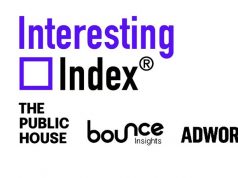 The SEO community was abuzz with excitement following the recent leak of internal Google documents. The leaked documents came from an anonymous Google source and were first published by Rand Fishkin of SparkToro and later confirmed as authentic by Google. Sean Markey looks at some of the more interesting insights.
The SEO community was abuzz with excitement following the recent leak of internal Google documents. The leaked documents came from an anonymous Google source and were first published by Rand Fishkin of SparkToro and later confirmed as authentic by Google. Sean Markey looks at some of the more interesting insights.
It was possibly the most exciting thing to happen in the SEO World since the Panda algorithm update! The documents provided unprecedented insights into Google’s search algorithms and practices.
What happened and what exactly was in “The Leak”?
Basically Google accidentally ‘published’ API details related to its search algorithm and this was picked up by independent crawlers and cached. Google confirmed it as authentic and the leak comprised approximately 2,500 pages of internal documentation that was inadvertently made public online.
However, it’s important to note that the leak is not the entire Google Algorithm for all to see. Nor is it a list of confirmed ranking factors. It’s also not something that we should base all SEO decisions on. Nor is it up to date or proof that Google lied about EVERYTHING.
It is, however, a very interesting document that gives us some clues regarding what Google finds useful and not useful. We can infer positive and negative effects on rankings, although nothing is 100% certain.
We would be keen to remind people that, just because something is in the leak, it doesn’t mean it’s in the algorithm. Here are our 4 key takeaways from the leaked documents:
Content Marketing – Considerations & Opportunities
When it comes to content, Google seems to value the following:
Authorship: Informative author bios, and authors who have a presence on multiple websites, with structured data linking them up.
Lead-In Text: text that explains exactly what the article is about at the start. Basically, don’t stall for time with big loosely related, intros.
Freshness: Fresh content seems to be very important, so include a date in the byline and regularly update your content to include up-to-date information.
The Verdict on Links
Spoiler: They work! Google seems to value the following when it comes to links:
Authority: Google always says it doesn’t use Domain Authority, even though building DA (through links) continues to have a positive effect on SEO in practice. There are several references to ‘siteAuthority’ and ‘Pagerank’ in the leak.
Relevancy: Links from topically relevant sites will do more for you than links from sites with higher Pagerank (but lower relevance).
Bad Links: There Are No ‘Toxic Links’: Crappy links are ignored and don’t hurt your rankings. You almost definitely don’t need to pay for a ‘Toxic Link Audit’.
Clicks and User Experience
When it comes to User experience and Clicks – User experience trumps click-through rate. Google doesn’t just value clicks, but what the ‘clicker’ does once they get onto your website. Clicks can be broken out as follows:
Good Clicks: Google values good clicks as that signifies a positive experience for the user. Metrics such as dwell time and additional pages viewed are potential signifiers.
Bad Clicks: A negative user experience will, however, go against you – clicks that immediately bounce would likely be counted as a ‘bad click’.
Unicorn Clicks: These clicks are highly valued as they likely signify a very specific action related to the page such as a user making a purchase or filling out a contact form.
Squashed Clicks: These are likely clicks from bots/spam clicks. Google can detect these using cookie history, logged-in Chrome data, and pattern detection.
Demotions: Things Google Doesn’t Like
Anchor Text Mismatch: If the text linking to your website doesn’t match what’s on your website, you will probably get a black mark against you.
Bad Reviews: It wasn’t totally clear, from the document, what the definition of “bad reviews” was. Whether a bad review means poor scores (i.e. low stars) or poorly created (i.e. spammy) reviews.
Exact Match Domains: Exact match domains are also apparently not liked by Google. So, for example, calling your website ‘bestshoesireland.com’ might actually hurt your rankings. This was further iterated in February this year when Google’s John Mueller talked about how keyword-rich domain names can be associated with spam.
Anyone who already works with our SEO team will probably find the above quite familiar, as it mirrors Wolfgang’s 3 Pillars of SEO fairly closely – Relevance, Authority, and Experience.
With that in mind, our team is not hitting the panic button and making wholesale changes to our strategies just yet, but you may see some tweaks in our SEO strategies in the not-too-distant future.
Sean Markey is head of SEO with Wolfgang Digital and this article was first published on the agency’s website HERE






















